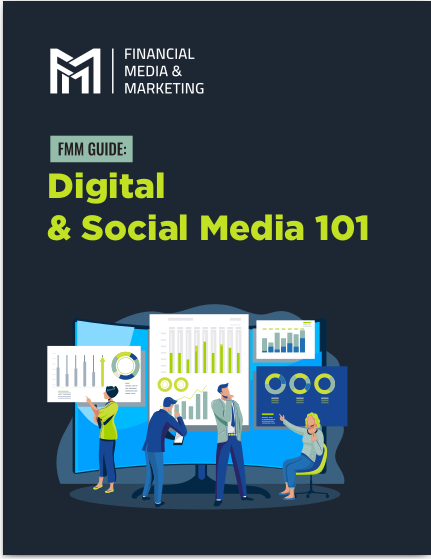Key Takeaways:
-
Google Reviews can significantly impact your credibility, visibility, and client acquisition as a financial advisor. A strong review profile establishes trust and attracts more leads.
-
Implementing a strategy to consistently collect and showcase Google Reviews will help you grow your client base and stand out from competitors.
Why Google Reviews Matter More Than Ever for Financial Advisors
In 2025, potential clients are more skeptical than ever. They don’t just take your word for it—they search online to see what others are saying. Google Reviews serve as social proof, influencing decisions before someone even reaches out. If you’re not actively managing your online reputation, you’re likely missing out on high-value leads.
The Power of Social Proof in Financial Services
Financial advising is a trust-driven business. Clients need reassurance that their financial future is in good hands. Google Reviews provide that confidence by showcasing real experiences from people who have worked with you. Positive reviews make you more approachable, while negative ones—if handled well—can demonstrate professionalism and responsiveness.
Higher Rankings, More Visibility
Google favors businesses with strong reviews. The more positive reviews you have, the better your chances of appearing in local search results when people look for financial advisors. This means that a well-maintained Google Reviews profile can generate leads organically without extra advertising costs.
How to Get More Google Reviews (Without Being Pushy)
You know reviews are essential—but how do you actually get clients to leave them? Many advisors worry about seeming too aggressive when asking for reviews. Here’s how to encourage more feedback naturally.
1. Ask at the Right Time
Timing is everything. The best time to ask for a review is when a client has had a positive interaction with you—whether it’s after a successful investment strategy session, tax planning discussion, or a financial goal review. If they express satisfaction, that’s your cue to ask.
2. Make It Simple
Clients are busy, and if leaving a review feels like a hassle, they won’t do it. Provide a direct link to your Google Reviews page in follow-up emails, text messages, or even in your email signature. The fewer steps involved, the better.
3. Use Automation to Your Advantage
Incorporate review requests into your CRM system. Set up automated follow-ups that politely ask for feedback a few days after an appointment. This ensures consistency without manual effort.
4. Incentivize Without Violating Policies
While you can’t offer direct financial incentives for reviews, you can create a sense of community. Hosting financial education webinars or exclusive Q&A sessions for reviewers can encourage engagement without crossing ethical lines.
5. Engage With Existing Reviews
Replying to reviews—both positive and negative—shows that you value client feedback. Thanking clients for their kind words encourages others to leave reviews, and professionally addressing concerns in negative reviews demonstrates your commitment to improvement.
Managing Negative Reviews Like a Pro
No matter how great your services are, negative reviews are inevitable. How you respond to them can either restore trust or damage your reputation.
Stay Calm and Professional
It’s easy to get defensive, but a measured response is far more effective. Acknowledge the concern, offer a solution if possible, and invite the client to discuss it further offline.
Showcase Your Commitment to Client Satisfaction
A well-handled negative review can actually work in your favor. When potential clients see that you take feedback seriously and resolve issues professionally, they gain confidence in your service.
Monitor Your Reviews Regularly
Don’t let reviews pile up without checking them. Set up Google Alerts or use reputation management tools to stay updated and respond in a timely manner.
Optimizing Your Google Reviews Profile for Maximum Impact
Getting reviews is only half the battle—how you present them also matters.
Keep Your Business Information Updated
Ensure your Google Business Profile has accurate contact details, website links, and service descriptions. An incomplete profile can make you look less credible.
Feature Reviews on Your Website
Don’t let great reviews sit on Google alone. Display them on your website, landing pages, and marketing materials to maximize their impact.
Use Keywords in Review Responses
When responding to reviews, naturally incorporate relevant terms like “financial planning,” “retirement strategies,” or “investment advice.” This helps with search rankings.
Encourage Clients to Be Specific
Generic reviews like “Great service!” are nice but less impactful. When asking for reviews, gently suggest that clients mention what they found most valuable. For example:
-
“I appreciated how [Advisor Name] explained complex investment strategies in a way I could understand.”
-
“The retirement plan we created was tailored to my exact needs, and I feel more confident about my financial future.”
How Many Reviews Do You Actually Need?
While there’s no magic number, a strong baseline in 2025 is at least 50 positive reviews. If competitors in your area have more, aim to surpass them. The higher your review count, the more trust potential clients will place in you.
Consistency Matters More Than Volume
Getting a rush of reviews in one month and then none for a year looks unnatural. Aim for steady growth—one or two new reviews per month can make a big difference over time.
Why Google Reviews Will Matter Even More in the Future
Consumer behavior is shifting toward digital trust signals. With AI-driven search and increasing competition, financial advisors who invest in their online reputation will gain a significant edge. Google’s algorithms favor businesses with frequent, high-quality reviews, meaning your review strategy today will impact your visibility for years to come.
Building a Future-Proof Reputation Strategy
Instead of seeing Google Reviews as a one-time effort, treat them as an ongoing strategy. The financial advisors who thrive in 2025 and beyond will be those who consistently engage with clients, seek feedback, and maintain a strong digital presence. Start optimizing your review collection process today, and watch as new leads find their way to your business effortlessly.










